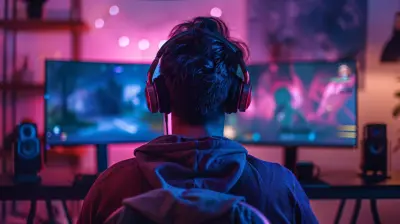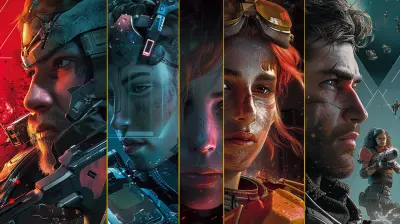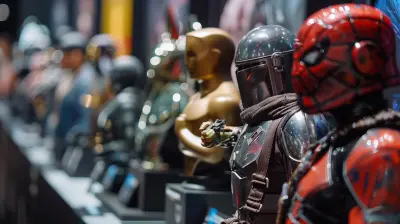Analyzing the Link Between Music Festivals and Gaming Events
13 November 2025
Have you ever noticed how music festivals and gaming events seem to share the same electric vibe? Like two sides of the same neon-lit coin, these worlds—though seemingly different—are more intertwined than we might think. Picture this: a DJ drops a bass-heavy beat as digital fireworks explode across a massive screen and cosplayers dance like they’re in a rave. Sound like a music fest? Or a gaming con? Could be either. That’s the magic at play. 🔥
In this post, we’re going deep into the rabbit hole of pop culture to analyze the fascinating, mysterious connection between music festivals and gaming events. Buckle up, because this is where the thumping bass meets the button mash.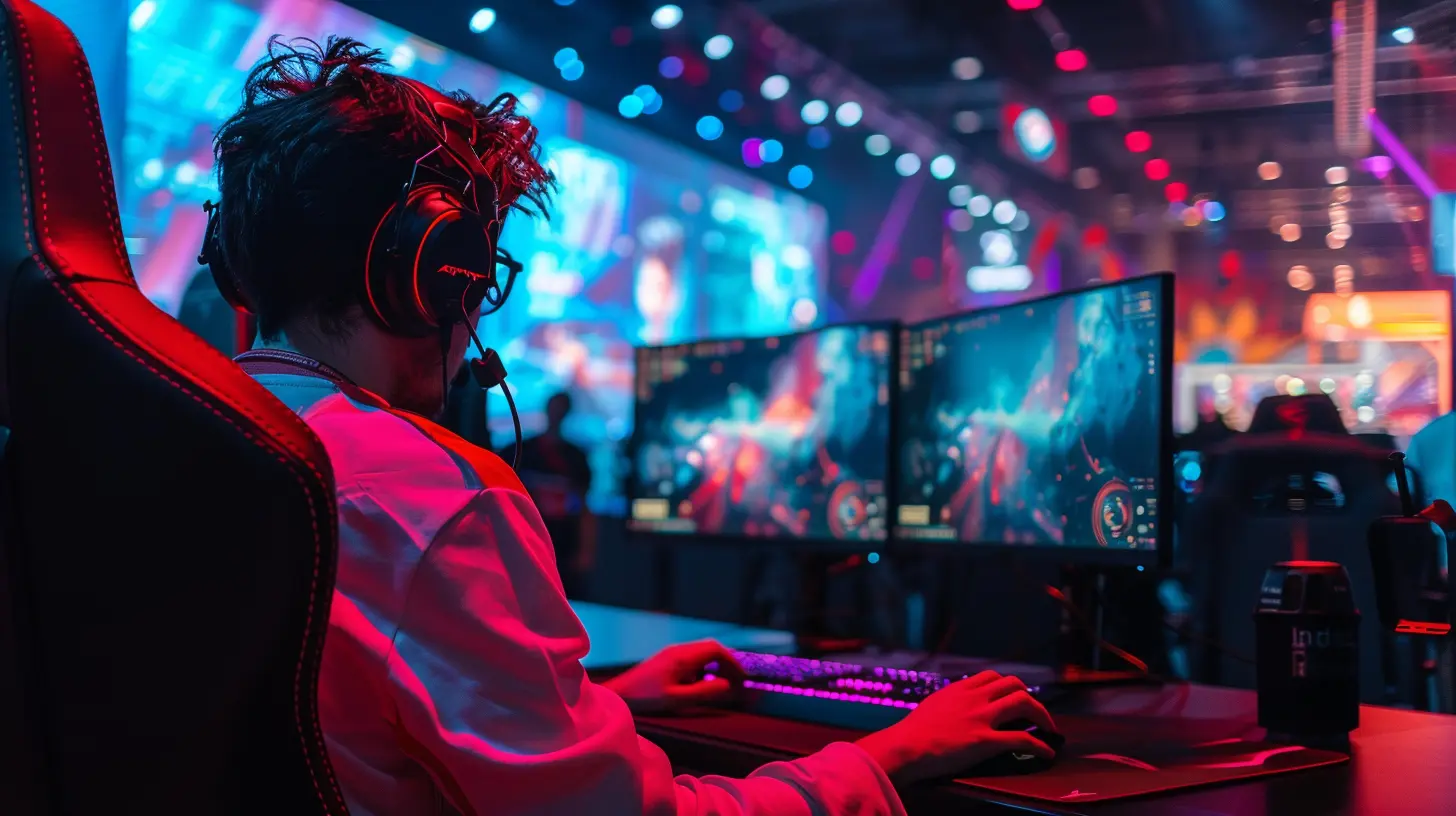
🎮 Where Gaming and Music First Crossed Paths
Let’s rewind for a second. Before Fortnite concerts and massive gaming expos with live performances, where did this all begin?Gaming and music have always had a symbiotic relationship. Back in the ‘80s and ‘90s, iconic game soundtracks like Tetris, Legend of Zelda, and Final Fantasy stirred emotions long after the screen faded. But it wasn’t just the music in the games—it was how gamers connected to those tunes, how they became the anthems of our youth.
Fast forward a few decades, and this casual connection turned into something bigger. Live orchestras played gaming music to packed theaters. EDM swept in like a digital tsunami, echoing the energy of gaming. Suddenly, genres like synthwave and chiptune started making playlists look like game soundtracks. The lines began to blur.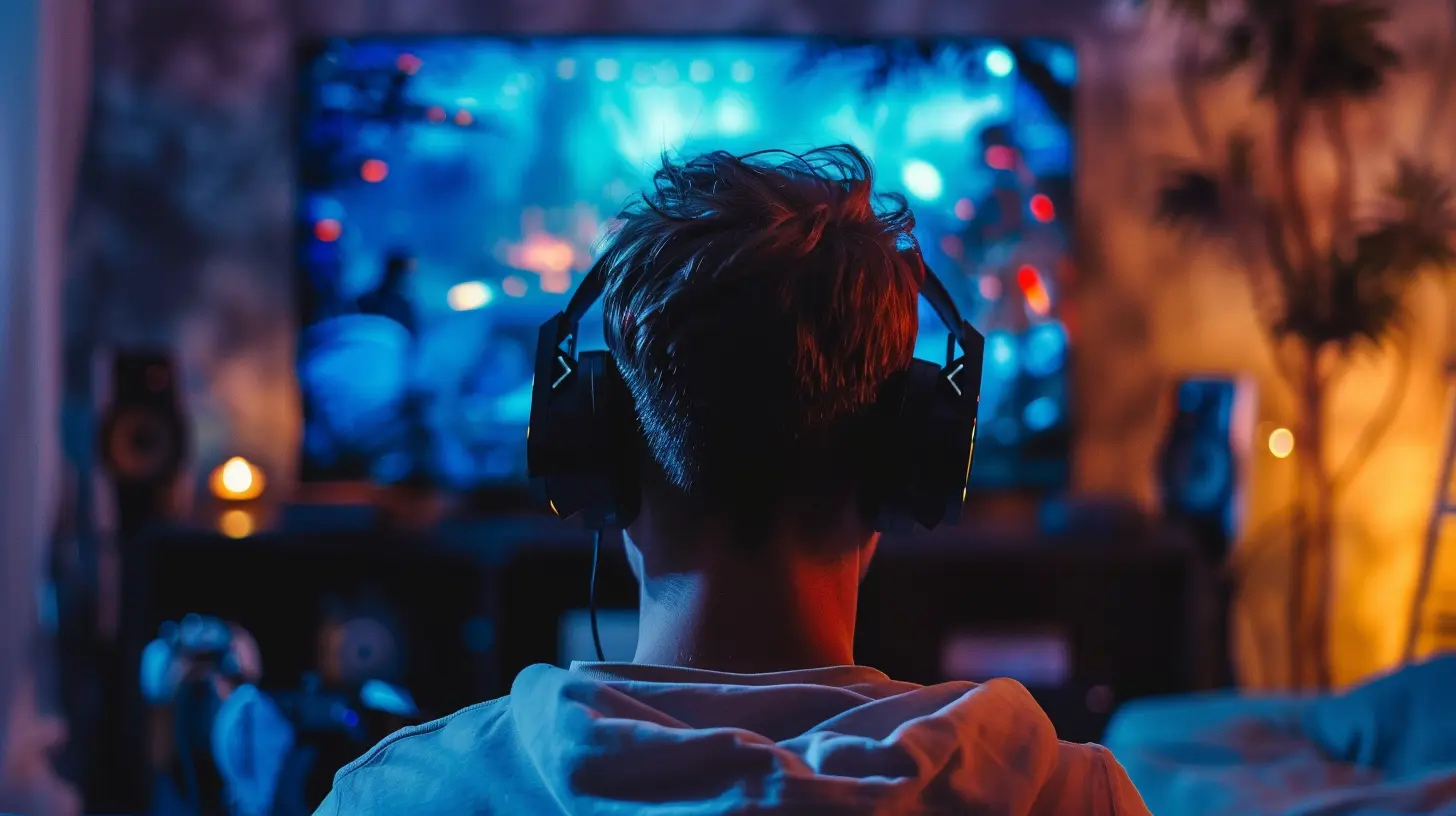
🎧 Music Festivals Got "Game"
It wasn’t long before music festivals saw what gaming had: a young, passionate, internet-savvy crowd hungry for immersive experiences.Big-time music festivals like Coachella and Tomorrowland began embracing tech in ways that mirrored the gaming world. Think about those immersive LED installations, AR stages, or interactive wristbands that respond to music. Sounds kind of like a next-gen gaming interface, right?
On the other side, games like Fortnite started pulling off full-blown concerts in the middle of a battle royale. Travis Scott’s 2020 event inside Fortnite wasn’t just a concert—it was a jaw-dropping, interdimensional experience watched by millions. Marshmello’s Fortnite set before that? Groundbreaking.
Music festivals and gaming events began syncing like Bluetooth speakers.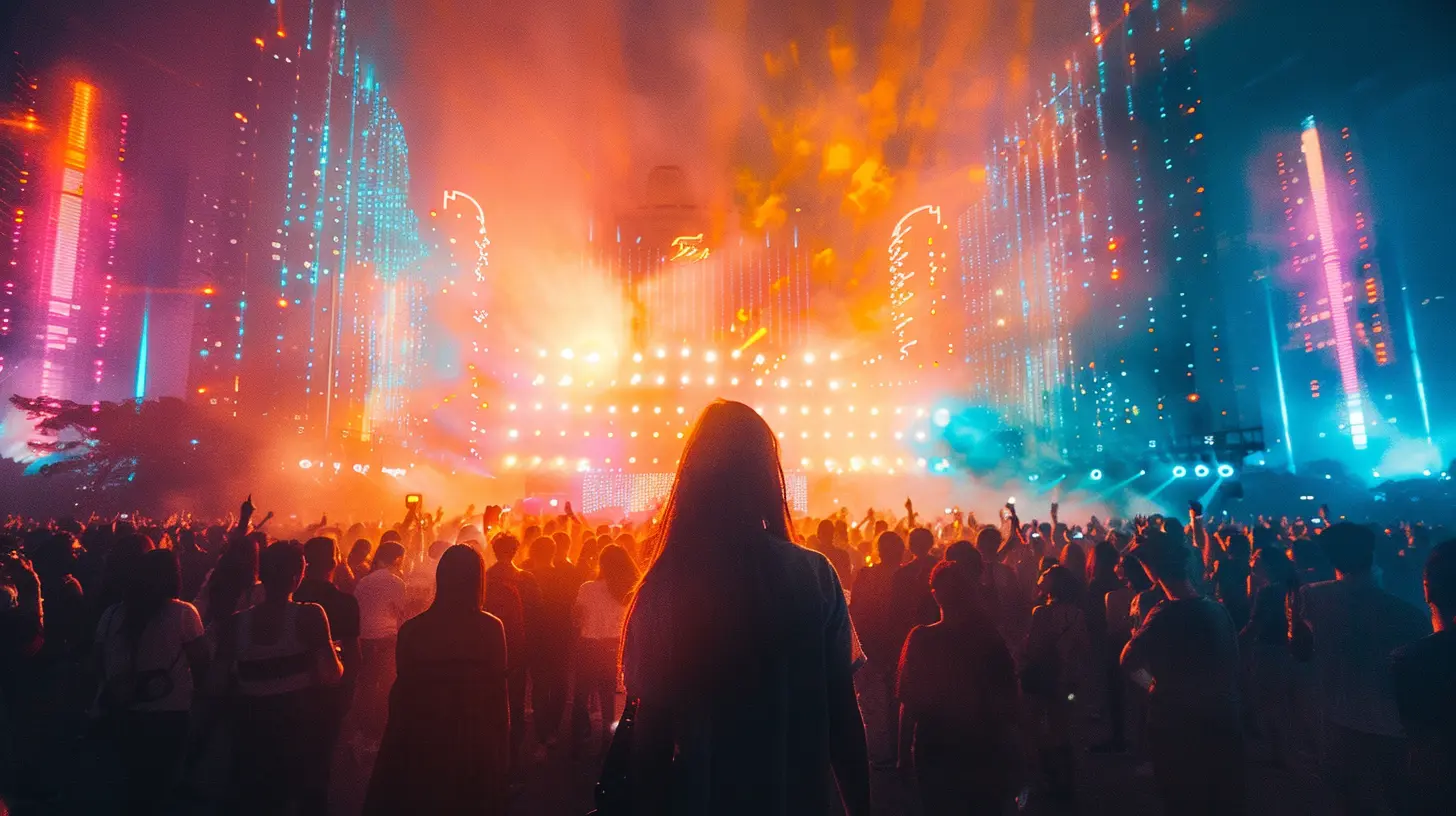
🕹️ Gaming Events Go Full Festival Mode
Let’s flip it. Gaming events started looking more like music fests.Have you been to E3, TwitchCon, or Gamescom lately? It’s not just rows of developers demoing their craft. It’s cosplay runways, live DJs, food trucks, and crowd chants louder than a stadium. There's a rhythm to the chaos—just like a music festival.
Take DreamHack, for example. It started as a LAN party in Sweden in the ‘90s and morphed into a global phenomenon with tournaments, merch booths, musical acts, and even raves. No kidding—DreamHack has pulled in artists and DJs to spin for throngs of keyboard warriors.
Or look at BlizzCon—where fans of Blizzard’s games gather, and the night ends with live music performances from acts like Metallica and Muse. We're not in Kansas anymore, folks.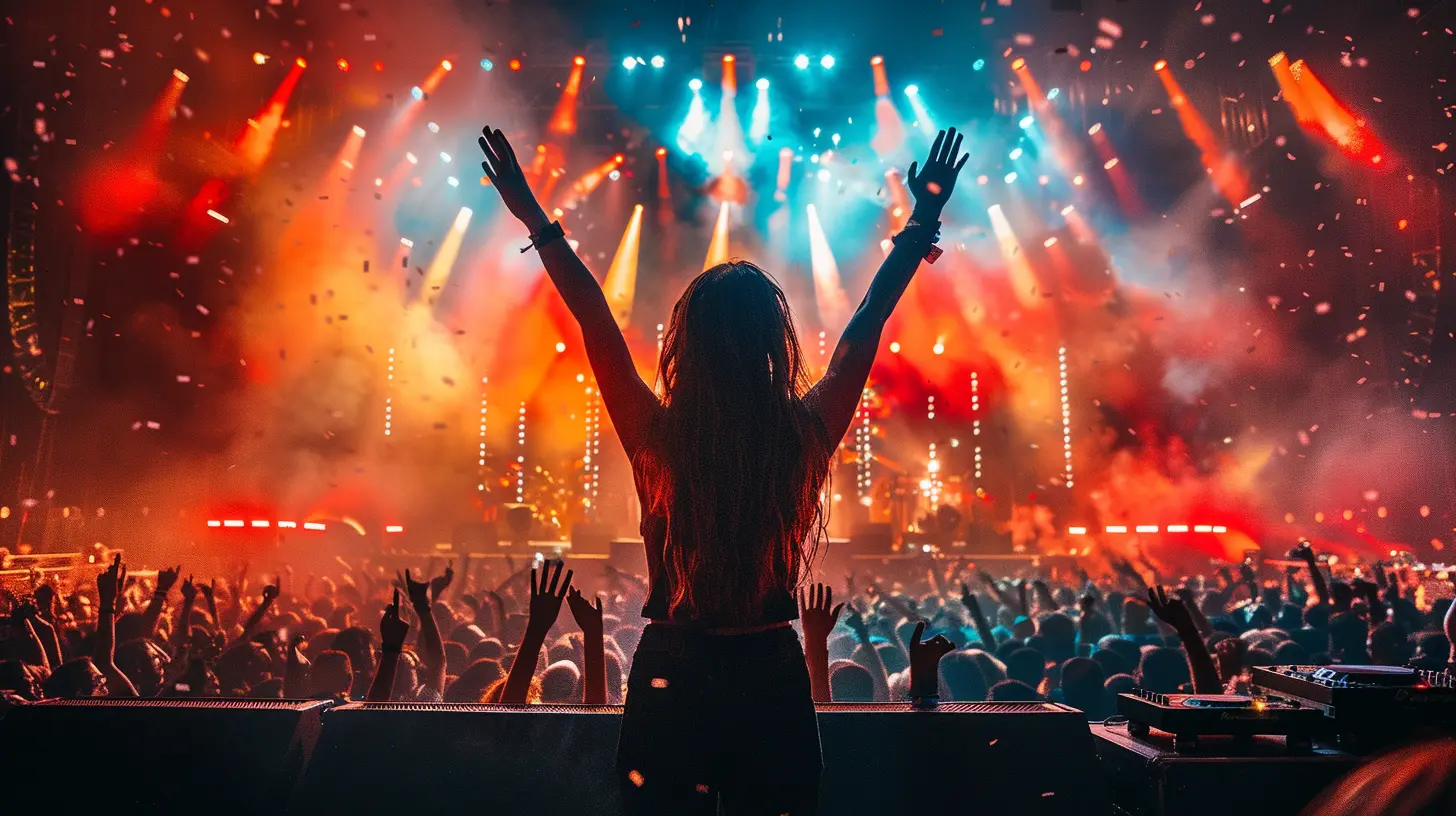
🔄 The Cultural Crossover
So what’s really going on here? Why are music festivals dipping into gaming aesthetics and vice versa?The answer lies in culture.
Music festivals and gaming events are no longer niche. They’re both pillars of modern entertainment, drawing in millions globally. But here’s the kicker—they attract the same kind of audience. Think young (or young at heart), tech-savvy, community-driven, and deeply passionate about immersive experiences.
These aren’t just events anymore; they’re entire ecosystems. And in a world addicted to “experience,” both music and gaming deliver that high.
Plus, with Gen Z and Millennials, digital identity is everything. Whether you're wearing a banana suit in Fortnite or glitter-drenched rave gear at EDC, you’re expressing yourself in a shared space. It’s social media IRL—just louder and brighter.
🎭 The Role of Avatars and Identity
Let’s talk avatars. In gaming, you can be whoever you want. A pirate? Sure. A cyborg samurai? Go for it. But it’s not that different at festivals. That unicorn onesie? That LED mask? That's your avatar—your alter ego stepping into a dreamlike realm where rules dissolve.Gaming conventions and music festivals are essentially masked balls of the modern world. No wonder they’re crossing into each other’s dimensions.
And let’s not forget the cosplay crossover. The cosplay scene at music festivals is real—check out Burning Man or Electric Daisy Carnival and tell me those aren’t gaming-inspired getups straight out of a sci-fi or fantasy RPG.
🔊 Music = Emotional Glue
Now, here's where things get deep.Music is the emotional glue that binds events together. In video games, soundtracks guide us emotionally—alert us, excite us, even make us cry (looking at you, The Last of Us). In music festivals, the beat leads the crowd like a conductor with a wand made of neon.
When you mesh the two—like when a DJ drops a remix of a game soundtrack at a gaming convention—there’s an emotional electricity that’s almost tangible. It resonates with fans on another level.
This shared emotional landscape is why crossover success stories like Beat Saber or Just Dance exist. These aren’t just games—they’re interactive concerts where you’re the main act.
🚀 Tech Is the Ultimate Catalyst
Without tech, this hybrid culture wouldn’t exist. Let’s give props where they’re due.AR, VR, 3D sound, LED mapping, holograms... both gaming and music events have become test labs for bleeding-edge tech.
Virtual concerts in VRChat or Horizon Worlds? You got it. Metaverse music festivals hosted by gaming platforms? Already happening.
Gamers are used to navigating 3D spaces, managing digital identities, and engaging with interactive content. So when a music festival introduces these elements, gamers feel right at home. In fact, they’re often the ones building the tech that makes it all work.
💵 The Business Side: Follow the Money
Let’s not pretend it’s all just vibes. There’s big money behind this fusion.Brands are catching on. Nike’s doing drops in Fortnite. A-list artists are launching music videos inside Roblox. Game devs are partnering with DJs for custom soundtracks. Sponsorships, merch, in-game purchases—it's all part of the commercial explosion.
And why not? The overlap means doubled audiences. For example, an artist doing a concert inside a game like Fortnite or Minecraft isn’t just performing—they’re breaking into a market of millions of players who might become fans.
From a business perspective, combining gaming and music is a no-brainer with high ROI.
🌐 The Rise of Hybrid Events
Thanks to the pandemic, the era of hybrid events (part in-person, part virtual) has changed the game—literally. And the industries that capitalized fast? Gaming and music.We now have digital music festivals hosted entirely in video games. Fortnite’s Rift Tour. Decentraland’s Metaverse Festival. Entire lineups of real-world artists playing inside digital worlds, with audiences attending as avatars from their bedrooms.
It’s the future happening now—and gamers are leading the charge.
📣 What Does It All Mean?
So, what does this connection between music festivals and gaming events really mean?It means we're watching the birth of a new culture. One that values immersion, experience, creativity, and—most of all—community. Whether you’re headbanging in a mosh pit or fragging enemies with a squad, it’s about being part of something bigger.
It’s no surprise these two worlds are merging. They're powered by passion, driven by innovation, and fueled by the desire to connect. The only real difference between a rave and a raid might be what gear you bring.
🔮 The Road Ahead
We’re just scraping the surface.Expect more crossover in the coming years—more in-game concerts, more festival-like gaming events, more artist collabs with game devs, and possibly a full-blown music-gaming con. Imagine a sprawling digital carnival where you can catch a concert, play a game, and meet your favorite streamer, all in one place.
The lines are not just blurring—they’re vanishing. And honestly? That’s where the fun begins.
Final Thoughts
At the end of the day, music festivals and gaming events are just two expressions of the same human desire: to escape, connect, and vibe. Whether through rhythm or gameplay, both worlds create spaces where reality gets an upgrade.So next time you're dancing under the stars, or locked in a legendary boss fight, remember—you’re part of a culture bigger than yourself.
Let’s game louder. Let’s rave smarter. Let’s keep blurring the lines.
all images in this post were generated using AI tools
Category:
Game CultureAuthor:

Lana Johnson
Discussion
rate this article
1 comments
Cash McKinney
Music festivals and gaming events share a unique synergy, transcending mere entertainment to foster community and creativity. Both spaces invite participants to explore identity and connection, highlighting the emotional resonance of shared experiences. As digital landscapes evolve, understanding this link can deepen our appreciation for both cultures and their societal impact.
November 13, 2025 at 5:40 AM

Lana Johnson
Thank you for your insightful comment! The intersection of music festivals and gaming indeed cultivates community and creativity, enriching our understanding of shared experiences and identity in our evolving digital landscape.
